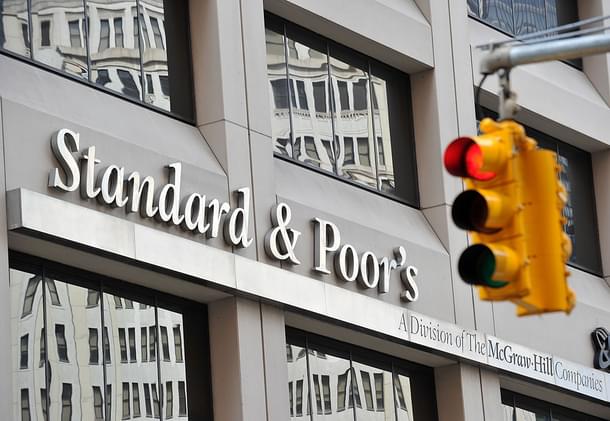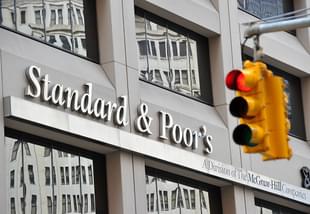Insta
India’s Annoyance With S&P Rating Highlights Need for BRICS Credit Rating Agency
Swarajya Staff
Nov 05, 2016, 04:11 PM | Updated 04:11 PM IST
Save & read from anywhere!
Bookmark stories for easy access on any device or the Swarajya app.


A senior official in India’s finance ministry has expressed disappointment over the decision by global rating agency Standard & Poor’s (S&P) to maintain the country’s sovereign credit rating at "lowest investment grade (BBB-) with a stable outlook''.
The S&P move does not seem to acknowledge India’s improved ranking in the World Bank’s Ease of Doing Business survey and Prime Minister Narendra Modi pushing the economic reforms agenda that includes a deal on a country-wide goods and services tax regime that will create a single market in the country.
India’s Economic Affairs Secretary Shaktikanta Das told journalists:
The report of S&P says that India has done all the right things. But if the rating has still not been upgraded, it does not bother us much but it calls for an introspection among those who do the rating.
From a BRICS perspective, the development could give a fresh impetus to its stated goal of setting up an independent rating agency. At the Goa Summit held last month, the five member nations agreed to set up an independent rating agency based on market-oriented principles to further strengthen global governance architecture.
In fact, the Goa declaration clearly stated:
We believe that BRICS institution-building is critical to our shared vision of transforming the global financial architecture to one based on the principles of fairness and equity.
The BRICS countries have taken the first step towards institution-building by making The New Development Bank (NDB) operational to meet infrastructure funding requirements of the members.
Batting for a rating agency backed by BRICS, New Development Bank president K.V. Kamath has expressed concerns over methodologies of the three prominent western global agencies (S&P, Fitch, Moody’s) saying that their subjective assessments constrain growth in emerging nations. Ratings of multilateral banks like the BRICS-promoted NDB were also affected by the parent countries’ ratings despite having deep capital buffers.
Kamath went on to suggest that a non-western approach to rate the emerging economies is the need of the hour. At present, three western agencies account for 90% of the rating market. Russia and China too have been at the receiving end of the global rating agencies owing to their differences with western powers on major world issues. The time may be ripe for BRICS to quickly activate their plans for an institution that evaluates on the principles of fairness and equity.
The article first appeared on Sputnik International.





